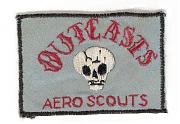... But some members of the Naval Special Warfare community are telling me he did not have to die, with one officer contending, “they’re burning up SEALs.”
The problem lies in the manner in which SEALs and other special operators are being deployed and for what kinds of missions.
“Special Operations warriors are not dispensable assets,” says Reserve SEAL Commander Mark Divine, who has been to Iraq several times and was tasked with evaluating the performance of a new Marine Corps special operations force during its developmental stages in 2004. “It will take two years to replace Lee with another combat-ready SEAL. The SEAL community is undermanned as it is, and it is the Navy’s number-one recruiting priority.”
Divine’s concerns are based on the fact that the U.S. Defense Department is looking to boost its numbers of special operators, currently totaling about 40,000, by 15 percent over the next four years. SEALs, less than 2,500 men, must increase by about 20 percent, and without reducing standards.
The Global War on Terror — with all of its backdoors and shadows and high-tech, asymmetrical, rapidly changing battlespaces — has placed an enormous demand on U.S. special-warfare units. After all, these are the guys tasked with operating in the darkest environs. Consequently, taking a smart, committed young man with an athletic bent (Lee himself was a star soccer player in high school) and transforming him into a Navy SEAL is neither cheap — about $350,000 a copy — nor easy. Most SEAL hopefuls are unable to pass the entry physical fitness test. And most who do pass the PFT simply don’t have what it takes to become a SEAL.
The attrition rate is extremely high for SEALs: A staggering 80 percent fail to complete the hellish six-months of Basic Underwater Demolition/SEAL training (BUD/S). Those who do survive BUD/S must again prove themselves in an equally demanding post-graduate period with an active SEAL Team before officially becoming SEALs.
Special-operations teams like SEALs — including the super-secret Naval Special Warfare Development Group (formerly SEAL Team Six) — the Army’s special-operations forces (from Rangers to Green Berets to Delta), Air Force special-tactics teams, and the Marine Corps’ Force Recon and the brand-new Marine Corps Special Operations Command (MARSOC) teams, are responsible for conducting special missions, including counterterrorism, hostage rescues, prisoner snatches, foreign military training, special reconnaissance, sabotage, direct action, and the targeting of enemy leaders, among other highly sensitive operations. And many of those operations — though unknown thus never reported — have tremendous strategic relevance.
“In the context of Iraq, SEALs, who comprise a fraction of the Navy’s total force, are trained to handle those kinds of missions,” Divine tells National Review Online. “Every man is a critical asset in the war on terror. So to squander a life in support of a general cordon and search operation is just wrong.”...
Former SEAL John Chalus, who had one combat tour in Vietnam and whose two sons would later serve in the Navy (one of whom was a SEAL), tells NRO, “SEALs should not be combined with regular units unless the regular unit is used to support the special operation.”
Conventional units often provide security for special operators, setting up a perimeter around the operation and “keeping the bad guys at bay,” says Chalus. And of course, special operators often conduct reconnaissance and gather intelligence for conventional operations...









Bookmarks